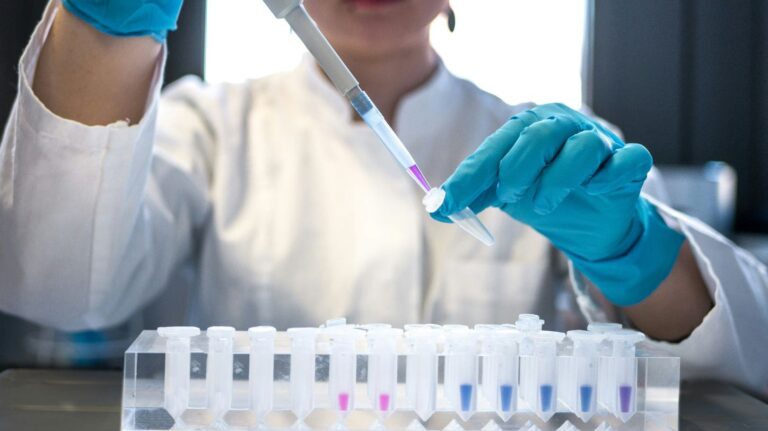The UK Government has announced the allocation of a record £13.9bn in research and development (R&D) funding for the coming year, aimed at driving innovation, supporting job creation and fostering long-term economic growth.
The funding will back advances across a range of high-impact sectors, including life sciences, green energy, engineering, and space technology.
The Department for Science, Innovation and Technology (DSIT) confirmed the distribution of the funding on Friday 4 April. Of the total, £8.8bn will be channelled through UK Research and Innovation (UKRI), the UK’s primary public research funder.
The investment is part of the government’s wider “Plan for Change”, which seeks to modernise public services and create new commercial opportunities through innovation.
Among the projects set to benefit from the funding are research efforts into early diagnosis of dementia, which affects more than 980,000 people across the UK. Scientists are examining the potential for blood tests that detect dementia-specific proteins alongside cognitive assessments, with the aim of developing a quicker, less invasive and more cost-effective diagnostic method.
The funding will also support work on antimicrobial resistance, including research by the University of Plymouth into new antibiotics such as Epidermicin. This work has already led to the creation of a spinout company, Amprologix, and is contributing to the fight against drug-resistant bacterial infections while opening commercial avenues in the biotech sector.
In green energy, public R&D funding is being used to develop cutting-edge technologies like wind power. An £86m investment is currently supporting the construction of the world’s most advanced wind turbine test facility in Blyth. The facility is expected to bolster the UK’s clean energy credentials, attract further private sector investment and create skilled jobs in the region.
The UK’s space sector is also a key focus, with nearly £670m allocated through the UK Space Agency to support growth in an industry that employs around 50,000 people nationwide. This includes up to £160m to boost the UK’s standing in the satellite communications market over the next four years, aiming to expand high-speed internet access to remote areas and close the digital divide.
An additional £310m has been earmarked for the Met Office to enhance the UK’s climate modelling capabilities. While best known for weather forecasts, the Met Office also plays a vital role in climate science, helping the UK prepare for and mitigate the impacts of climate change.
This R&D funding allocation forms part of a broader commitment from the Chancellor, who recently confirmed at the Budget that government R&D spending would be maintained at record levels, totalling £20.4 billion across all departments for the year ahead. The government expects this public investment to act as a catalyst for further private sector involvement, with long-term returns anticipated in job creation, innovation, and economic productivity.
Peter Kyle, science and technology secretary, said: “Our £13.9 billion investment in R&D is ultimately an investment in the future of the UK.
“R&D is essential to fulfilling this government’s Plan for Change – whether in improving lives across the UK and beyond through new life-saving drugs, helping us build a cleaner, greener future or in exploring beyond our planet to unlock new discoveries that keep us healthy, safe and prosperous and much more besides.”
Achievements and innovations in retail and e-commerce, healthcare and pharmaceuticals, food and beverage, automotive, transport & logistics, and more will be celebrated at the Robotics & Automation Awards on 29 October 2025 at De Vere Grand Connaught Rooms in London. Visit www.roboticsandautomationawards.co.uk to learn more about this unmissable event for the UK’s robotics and automation sectors!








